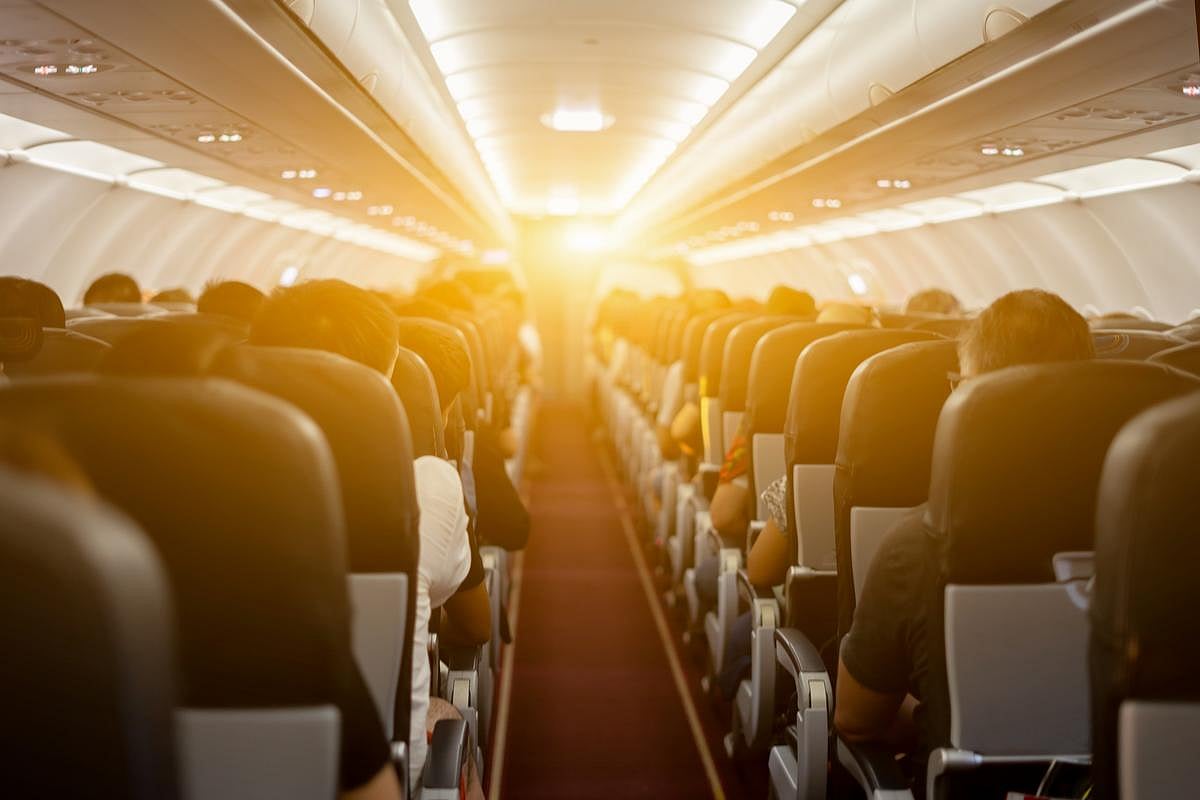Get Healthy!

- Dennis Thompson
- Posted October 16, 2024
Planes' Air Ventilation Can't Spread Nut Allergens to Passengers: Study
Folks with peanut allergies don’t have to worry that someone might be munching on the nuts during an airline flight, researchers report.
It turns out there’s no evidence to the commonly held belief that nut allergens can be spread through aircraft ventilation systems, a new review concluded.
“In fact, food-induced allergic reactions are around 10–100 times less common during flights than ’on the ground’, perhaps because of the multiple precautions food-allergic passengers take when flying,” wrote the research team led by Paul Turner, a clinical professor of allergy and immunology with the Imperial College London’s National Heart & Lung Institute.
For the review, published Oct. 15 in the Archives of Disease in Childhood, researchers compiled all published evidence on the subject dating back to 1980.
Overall, any allergic reactions to food caused by airborne particles are rare, researchers found. Notable exceptions include vapors from fish or seafood and exposure to wheat flour at work.
Peanut allergens can be detected at very low levels in the air while shelling nuts, researchers said, but the dust settles quickly and can only be detected close to the nuts. That means very little peanut dust circulates in the air.
What’s more, air is completely exchanged every three to four minutes during a flight by the cabin’s ventilation system.
Half of the cabin’s air intake is recirculated air that has passed through air filters, and the other half comes from outside, researchers said.
“There is no evidence that peanut or tree nut allergens are spread through aircraft cabin ventilation systems,” the researchers wrote in a journal news release. “Rather, the main risks are due to either failure of dietary avoidance, or allergen residues on surfaces, which can then be transferred through touch -- a situation exacerbated by the very short turnaround times with many low-cost carriers.”
Announcements requesting passengers not to consume nuts during the flight are unlikely to reduce any risk of in-flight allergic reactions, the researchers concluded.
However, it might be prudent to let food-allergic passengers board early, so they can thoroughly clean tray tables and any other surfaces near their seats, the researchers said. They noted the U.S. Department of Transportation already requires this of airlines, in regards to passengers with nut allergies.
“Airlines should have clear policies relating to food allergies which are easily available from their websites or on request,” the researchers wrote. “These policies should be applied consistently by both ground staff and cabin crew, in order to provide reassurance to food-allergic passengers and their caregivers.”
More information
The Mayo Clinic has more about peanut allergy.
SOURCE: BMJ Group, news release, Oct. 15, 2024





